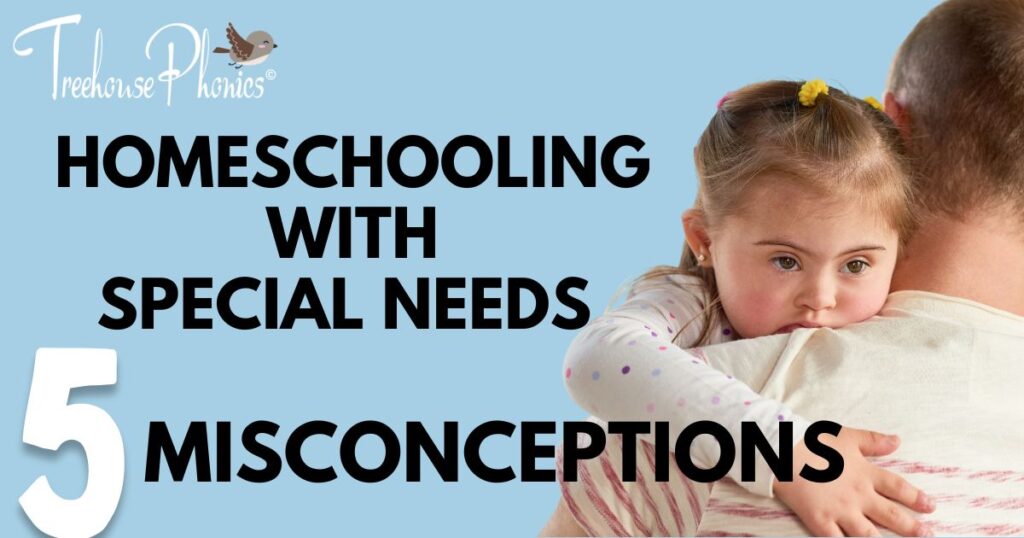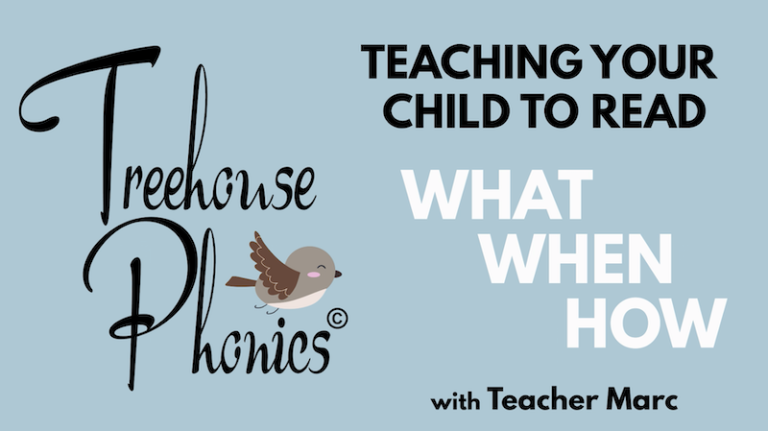There are several misconceptions surrounding homeschooling with special needs. Let’s examine five of the more common ones. These include the following:
Not Possible from home

This stems from the idea that children with special needs will require ongoing access to specialized resources that are only available in traditional schools. The term “specialized resources” might through you off. Are we led to believe that no average household could ever gain access to these rare and exotic resources and that it is best left to our school system to provide what is needed? Intimidation is about to take a backseat. Let’s quickly examine 6 items currently considered “specialized” and see whether they are harder to get than a briefcase full of plutonium.
- Occupational therapy equipment: Children with physical or sensory impairments may benefit from specialized equipment such as weighted blankets, sensory balls, therapy swings, and adaptive utensils.
- Speech and language resources: Children with speech or language delays may benefit from communication devices such as augmentative and alternative communication (AAC) devices, picture exchange communication systems (PECS), and speech therapy software.
- Assistive technology: This can include devices such as hearing aids, vision aids, and communication devices. Some children may also benefit from software programs that help with organization, time management, and task completion.
- Behavior management tools: Children with behavioral challenges may benefit from tools such as visual schedules, reward charts, and social stories.
- Educational resources: Some children with special needs may benefit from specialized educational resources such as sensory-based learning materials, adapted textbooks, and assistive technology for reading and writing.
- Therapy services: Depending on the child’s needs, they may benefit from services such as occupational therapy, physical therapy, speech therapy, or behavioral therapy.
I’m not here to question the validity or effectiveness of these resources or to diminish the fact that they are indeed “specialized” but I wish to dull the mystique that intimidates homeschoolers into thinking they could never acquire or utilize these resources in the comfort and security of their own home. Anything IS possible.
Too Difficult

Tenacity is a powerful tool! Add to it a sense of deep motivation and a profound desire to help a child in need and what do you have? The homeschool parent. These emotionally charged super tools are not taught in any college or university. So it’s safe to say you might be one-up on Special Needs Professionals in that regard. So, what is the difficult part?
With the tools you have at your disposal already, you might be pleasantly surprised how little you need to know, in order to gain a clinical perspective of the training and equipment you will need for your child’s specific needs. Will this require a trip to the admissions office at your local community college? Expensive night courses or in-house training sessions? It’s not to say that some specialized training may or may not be needed.
Depending on the severity and complexity of your child’s disability there are techniques and methods of instruction that are completely within your grasp to learn. Once you educate yourself on the minimal required skillset, your intuition will kick in and meet you halfway. Education can be expensive so before you go out and get a second mortgage on the house, consider first what you have access to, free of charge. These might include online resources that are private or government-sponsored, community support groups, and low-cost educational consultants.
Missed Socialization Opportunities

In a traditional setting, your child is rubbing shoulders with up to 20 or 30 children of their own peer group each day. True, homeschooling can’t compete with those numbers but think of it as a chance to hand-pick who they hang out with. Families you already know in the neighborhood, children from your extended family (cousins, nieces, nephews, and so on).
A social platform like Facebook is a powerful tool to connect with other homeschooling families. It is through this type of social networking that will help you find co-ops, playgroups, community programs, clubs, and activities. Remember, and I will be very frank here, in a classroom setting, not all 20 or so children are going to be the kind of influence your child needs, especially if his or her special needs affects their emotional equilibrium and makes them an easy target for ridicule of bullying. A few, hand-selected group of friends from families whose ethical and moral standards reflect your own will make it a whole lot easier to find friendships that may last a lifetime.
Less effective than traditional school

It’s a little easy to envision the traditional school environment. One teacher standing at the front of a room full of desks and chairs, 20 to 30 bright-eyed young learners seated and ready for instruction. No Kinder class is complete without the Macaroni art and finger paintings mounted on display boards or hanging from a string. It’s what lies beneath the surface that demands a more intuitive examination. The first mistake is comparing your homeschool to what you think is a carefully crafted curriculum that is flexible enough to bend to the diversified needs of every learning style you can through at it. It takes a highly experienced and super-dedicated teacher with above-average mental and physical stamina to tailor, twist and reengineer a standard government-endorsed curriculum to fit the needs of every child in the room. Chances are, your child may be the one that slips through the cracks. Far less of a chance when they are staring you in the face at home.
With that said, both traditional schools and homeschools are on equal footing if they fail to address a child’s specific needs, the level of one-to-one interaction, the use of tailored curriculum, and available outside support when needed. Where does homeschool take the gold? Flexibility in scheduling and pace. You factor in a parent driven by love to help their child succeed? You would be amazed at how resourceful you become and how you can make just about any program work.
Too expensive

We touched on the cost of additional education earlier but in general, the cost factor should be addressed from a broader perspective. Is the homeschooling option too expensive? It doesn’t have to be. There are low-cost solutions that might require a little leg work and research on your part but it can be done. Again, I can’t stress enough how effective those Facebook communities are. I have personally joined over 40 of them to gain insight and lend support where I can.
When searching for a group, be sure to Include the name of your State, Province, or city. You might be pleasantly surprised by how many specific groups you find and the number of people that come forward with an excellent list of free and budget-friendly solutions. Are you living in a place where public schools are free? Have you factored in the hidden cost of transportation, the clubs and ECA activities, afterschool supervision, and the additional school supplies they don’t provide?
You probably have most of what you need at home already and with a curriculum or methodology that works for you and your child. Even the fancy schmancy private schools can’t compete with that. You will soon realize that you have done it all at a fraction of the cost!
In conclusion, while there are certainly challenges associated with homeschooling with special needs, many of the common misconceptions surrounding this option are unfounded. With the right resources and support, homeschooling can be a highly effective option for children with special needs, allowing them to receive individualized instruction and support that is tailored to their unique needs.



